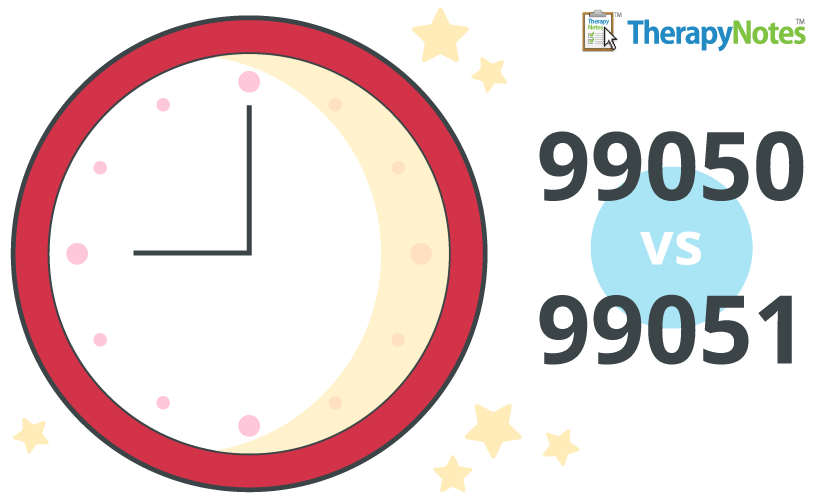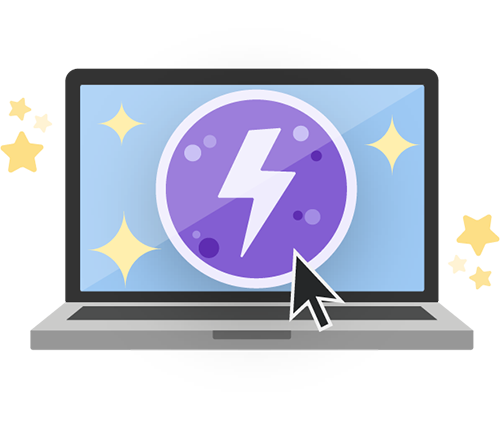Billing After Hours: CPT Code 99050 vs. 99051
By TherapyNotes, LLC on August 1, 2018


Therapy is not generally a 9-5 job. Sometimes clients need you on short notice or outside of typical hours. When this happens, there are two CPT codes you can bill: 99050 and 99051.
What are 99050 and 99051?
Both 99050 and 99051 are add-on codes for after-hour services but have distinct definitions.
According to the CPT manual, 99050 is used for “services provided in the office at times other than regularly scheduled office hours, or days when the office is normally closed (e.g., holidays, Saturday or Sunday), in addition to basic service.”
The 99051 code is used for “services provided in the office during regularly scheduled evening, weekend, or holiday office hours, in addition to basic service.”
So, if you regularly work Monday through Friday, 9AM to 5PM, and do a session at 6PM on a Thursday, you would bill 99050, since it's outside of your regularly scheduled office hours. But if you regularly work Monday through Friday, 11AM to 7PM, and do that same 6PM Thursday session, you would bill 99051, since it's within your regularly scheduled evening office hours. It all depends on when you regularly work and what your payer considers evenings and holidays.
“Evening” is generally defined as after 5PM on weekdays. “Holidays” generally apply to federal holidays. But if you’re not sure what warrants using 99050 or 99051, check with local payers to see if other hours or holidays may be reimbursed.
Billing to insurance
Because 99050 and 99051 are add-on codes, they’re billed in addition to other codes used for the visit, such as 90834 or 90837.
When billing 99050 or 99051, keep in mind that an appointment that starts during business hours and ends after hours does not typically qualify for these codes. Also, insurance companies are not required to reimburse for the visit unless your contract with the payer specifically states they will. If it’s not in the contract and the claim is rejected, you could try to negotiate new terms or lobby for reimbursement.
Among those not required to cover 99050 and 99051 are Medicare and Medicaid. That doesn’t mean it’s never covered, though. It depends on the state, so check your local coverage policies.
How to handle after-hours
Make sure that your regular hours of operation are clearly stated on your website, signage, and marketing materials. This helps make your case to the insurance companies for extra reimbursement when you see a patient outside of your regular hours.
We’ll cover more codes in the future, so make sure you subscribe to our blog below to get notified of new posts.
Sources: CPT® (Current Procedural Terminology), American Medical Association; Memorandum Report, Department of Health & Human Services; Additional Income from After-Hours Codes (99050, 99051, 99053), The Journal of Urgent Care Medicine
* The content of this post is intended to serve as general advice and information. It is not to be taken as legal advice and may not account for all rules and regulations in every jurisdiction. For legal advice, please contact an attorney.
Get more content like this, delivered right to your inbox. Subscribe to our newsletter.
More Content You'll Enjoy
The Best Practice Fusion Alternative for Mental Health

Supercharge your Documentation with TherapyFuel!

